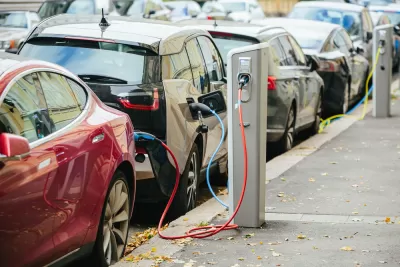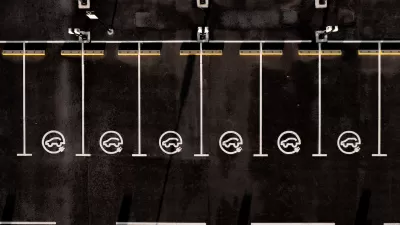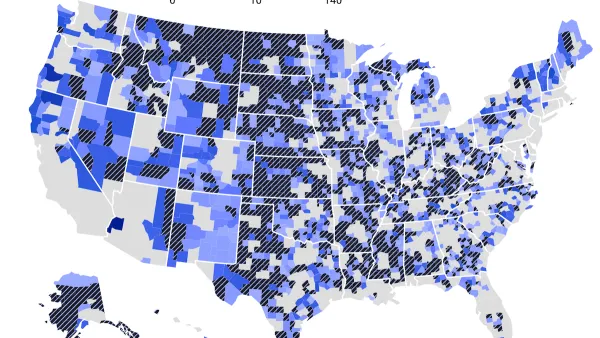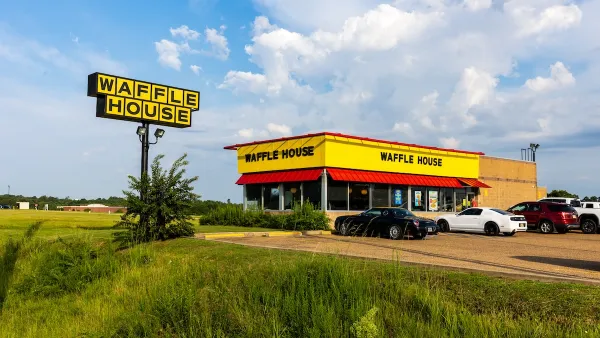Advocates warn that an inequitable distribution of EV charging facilities could lead to ‘charging deserts’ that will prevent widespread adoption of EVs in low-income communities.

The recently passed Inflation Reduction Act (IRA), among other federal programs, creates incentives that encourage the adoption of electric vehicles and supports the development of a nationwide EV charging network. However, some advocates worry that the infrastructure and incentives won’t reach the poorest communities—the people most impacted by the effects of pollution from fossil fuel-powered vehicles.
A piece by Brett Marsh in Grist highlights the uneven distribution of charging infrastructure, which is often difficult to find in low-income areas, comparing the problem to so-called ‘food deserts.’ “If there are neighborhoods that are already food deserts, why expect them to have a charging station or three?”
According to Marsh, “Charging stations are more likely to be found in dense clusters in wealthier and generally whiter urban areas. Drive, or walk, through a low-income community of color or a rural area, and you would be hard-pressed to find a charging station.” Presently, incentive programs for buying electric vehicles benefit wealthier households most.
Activists note that the inequitable rollout of EV infrastructure reflects historical patterns. “Activists and community members in neighborhoods of color have reflected on the missed opportunities of previous massive national infrastructure projects,” such as the interstate highway system. Advocates for low-income communities hope that they won’t once again be left behind.
FULL STORY: To Ensure Access to Electric Cars, Some Activists Are Calling Attention to ‘Charging Deserts’

Planetizen Federal Action Tracker
A weekly monitor of how Trump’s orders and actions are impacting planners and planning in America.

Restaurant Patios Were a Pandemic Win — Why Were They so Hard to Keep?
Social distancing requirements and changes in travel patterns prompted cities to pilot new uses for street and sidewalk space. Then it got complicated.

Maui's Vacation Rental Debate Turns Ugly
Verbal attacks, misinformation campaigns and fistfights plague a high-stakes debate to convert thousands of vacation rentals into long-term housing.

Boulder Eliminates Parking Minimums Citywide
Officials estimate the cost of building a single underground parking space at up to $100,000.

Orange County, Florida Adopts Largest US “Sprawl Repair” Code
The ‘Orange Code’ seeks to rectify decades of sprawl-inducing, car-oriented development.

Maui's Vacation Rental Debate Turns Ugly
Verbal attacks, misinformation campaigns and fistfights plague a high-stakes debate to convert thousands of vacation rentals into long-term housing.
Urban Design for Planners 1: Software Tools
This six-course series explores essential urban design concepts using open source software and equips planners with the tools they need to participate fully in the urban design process.
Planning for Universal Design
Learn the tools for implementing Universal Design in planning regulations.
Heyer Gruel & Associates PA
JM Goldson LLC
Custer County Colorado
City of Camden Redevelopment Agency
City of Astoria
Transportation Research & Education Center (TREC) at Portland State University
Camden Redevelopment Agency
City of Claremont
Municipality of Princeton (NJ)





























